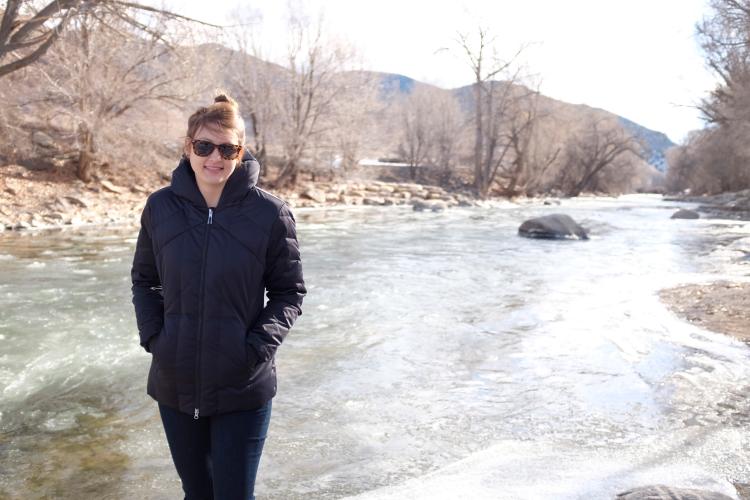Why this environmentalist won a coveted prize for social policy

Elizabeth Koebele stands along the banks of the Arkansas River. (Photo courtesy of Elizabeth Koebele.)
What's happening?
Elizabeth Koebele, a doctoral candidate in the Environmental Studies Program at CU Boulder, was one of only 19 award winners from 535 applications for the Horowitz Foundation for Social Policy grant. The $7,500 grant will help fund her research in water governance in the Colorado River Basin.
Why did an environmental studies doctoral student win a social policy award?
Koebele does a lot of field work that places her in social policy settings. She gets out there and rubs elbows with ranchers and business people, as well as fly fishing companies and environmental and municipal agencies, the stakeholders who compete for water resources in the Colorado River Basin.
“In the Colorado River Basin, our freshwater resources are becoming more scarce and more people need them,” she said. “There is more competition.”
In the processes she studies, stakeholders collaborate to understand the conflicts that arise when competing for water resources, and they work to develop mutually beneficial solutions, including rules for how the resources are managed, Koebele said. As part of her research in water governance, Koebele observes stakeholder meetings and conducts interviews and surveys in person. She studies how the stakeholders interact with each other and eventually produce changes in policies. This helps her understand how collaboration among the stakeholders can make water resources more sustainable in the West.
She added that CU Boulder’s environmental studies department is an interdisciplinary program that aims to look at environmental issues in new ways.
“It was exciting that the Horowitz Foundation saw my work on water as improving social policy,” she said.
Why is Koebele’s research important?
Freshwater shortages in the Colorado River Basin will continue to increase as the population grows and climate change affects the river basin, Koebele said.
“As we face more resource shortages and limitations, learning how to share resources with people who have different values and goals is one way we can make these resources more sustainable,” she said.
How will she use the award funds?
A large portion of Koebele’s work involves traveling to different parts of the Colorado River Basin, which includes Mexico. She plans to use the $7,500 to fund her research travel expenses, as well as pay for other costs related to her dissertation research, such as software.
If Koebele had not won the award, how would her research be different?
Koebele says she could have completed her doctorate by reviewing documents and by conducting phone interviews, but she said that observing the human aspect first-hand adds more depth to her research.
“It’s important for me to go out there and meet people on their own ground,” she said.


